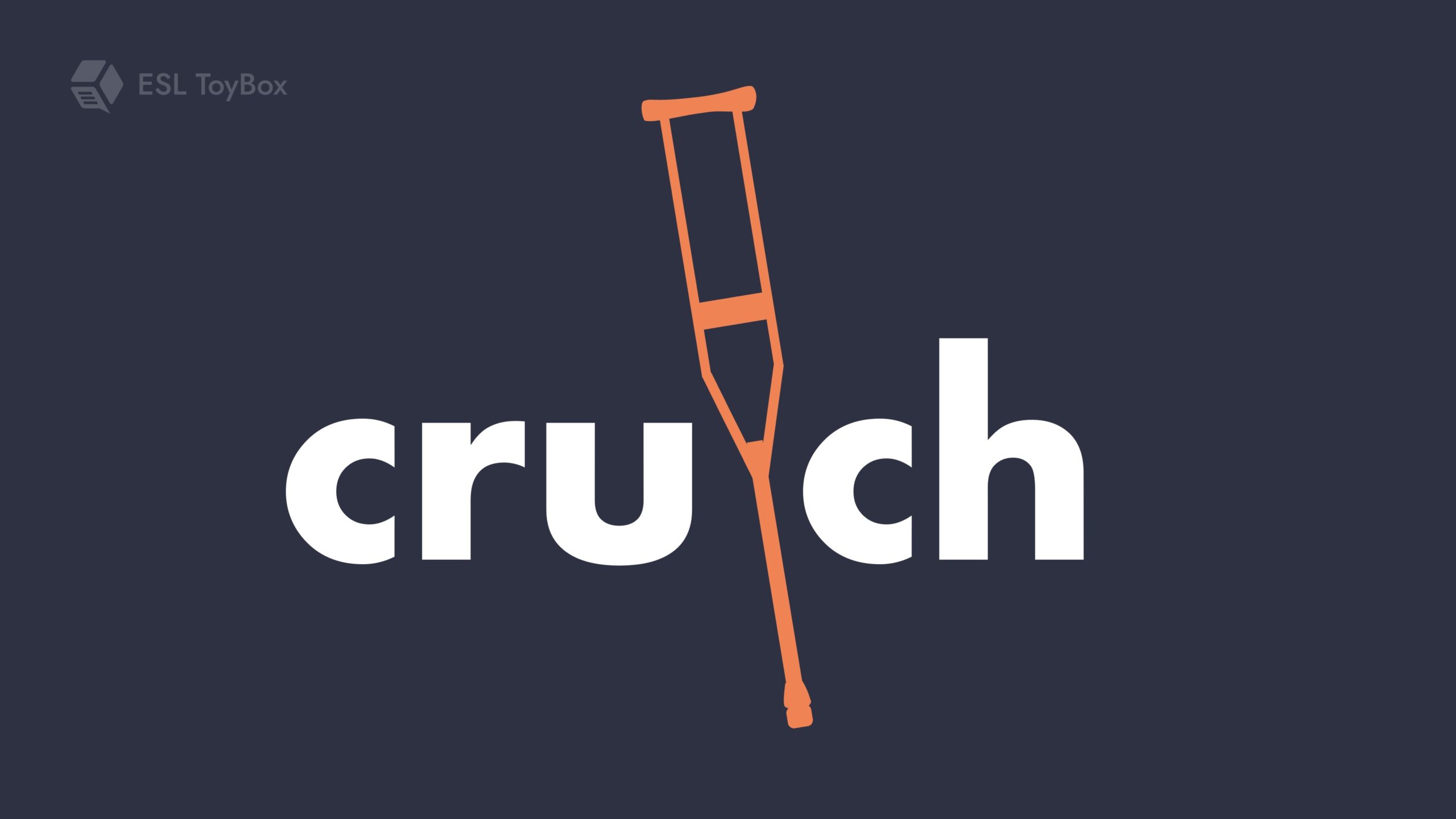Crutch
Chris, from the MapleNamu podcast, recently uploaded an episode about using L1 (Korean) in the classroom. He also asked what other people thought. Chris did his master’s thesis on this subject and is going to talk more about his subject in future podcasts. For him, speaking in L1 is a tool.
I agreed with him, but I also stated that I think it is a crutch. One of the interesting things about a language is that words can have multiple meanings. So, if two people have a different idea on what a word means, there can be a communication breakdown.
The literal definition of crutch that long thing that goes under your arm to support your body (버팀목). However, there is also a metaphoric definition of crutch as well. A crutch can be something that is relied on excessively for support or assistance. In this case, speaking in L1 would be the crutch for learning a second language (L2).
Example: Talking to students in their native language is a crutch that some teachers use to teach ESL students.
I think the real problem was with my interpretation vs his. I was making the point that a crutch can be used until the person can (metaphorically) walk on their own. To me, L1 in the classroom can be acceptable to get someone started in L2, or to convey meaning in certain situations. However, one could also believe that I was saying that teachers rely on L1 too much. To be fair, I do believe that generally. When someone uses crutch in this way, there is usually a negative stigma (낙인) attached to it.
Example: The students used a calculator as a crutch rather than learn how multiplication.
As I mentioned, Chris studied this for his master’s thesis and found that it really depends on the teacher and situation. I agree. Though, I would say that I am more against the use of L1 than he is. In the end, it is viable teaching method.
Crutch Words
Since we are on the topic of crutches, I wanted to mention crutch words. They are those filler words people use in speech and writing. They are words that we rely on too much and overuse. Here are the top ten examples from feedingtrends: Actually, obviously, honestly, like, basically, literally, so, well, look, and awesome. Additionally, crutch words can be crutch phrases like “mark my words”, “and so on and so forth”, “I’m not gonna lie”, “the thing is”, or “you know what?”
My crutch word while teaching is, “Now.” I use it a lot to start a new thought or as a time filler while I think of how I want to say something. What are your crutch words?
See Also: Adding insult to injury, Black and Blue, You can't teach an old dog new tricks, Teaching vs Telling
For more English phrases and quotes, follow me on Facebook:
https://www.facebook.com/ESL-ToyBox-112152010890485
Reference:
https://feedingtrends.com/niche/article/list-of-crutch-words-in-english-language-20-commonly-used-crutch-words
https://www.theatlantic.com/culture/archive/2012/09/literal-epidemic-crutch-words/323683/
https://www.theatlantic.com/culture/archive/2012/09/actually-literally-what-your-crutch-word-says-about-you/323648/
https://anchor.fm/maplenamu/episodes/Using-Korean-in-Class-Part-1-e19n22a?fbclid=IwAR29h-BFhnlTKJXTJHzEYQal_IG9xmsHSjcqsF-udPLPDjcAZjVbylkLMjM


